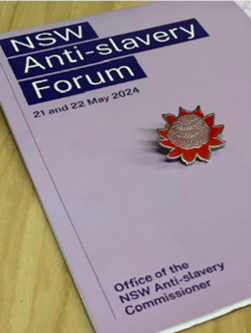
Systemic slavery reform

On 1 December 2024, a Guardian Australia article quoted the United Nations special rapporteur on contemporary forms of slavery:
"The Australian government has restricted foreign diplomats bringing domestic workers into the country, a UN anti-slavery expert has reported, after two recent federal court cases exposed systemic exploitation a judge described as “slave-like working conditions”.
Australia issues dozens of special visas each year to allow diplomats to bring in people from low-income countries as domestic workers at Canberra’s diplomatic residences. Reform to this process has been long overdue.
Those two Federal Court cases which have sparked government action were conducted by Clayton Utz for two of our pro bono clients.
In 2024 we ran three separate hearings against former Indian High Commissioner to Australia Mr Navdeep Suri Singh, and former Sri Lankan Deputy High Commissioner to Australia Ms Himalee Arunatilaka, with the tremendous support of Prue Bindon of counsel. The cases are groundbreaking, stripping away diplomatic immunity protection for former diplomats in respect of their employment of domestic workers in diplomatic residences. The cases confirmed that workers brought here under a special domestic worker diplomatic visa have the protection of Australia’s employment laws.
Both of our clients had their passports taken from them when they arrived in Canberra, and worked 14 and 16 hour days, seven days a week, for less than $1 an hour. They were not allowed to leave the diplomatic residence unaccompanied. Her Honour Justice Raper described their “slave-like working conditions”, and being “invisible from Australian society: Their work and entire existence is entrapped within domestic servitude”.
According to last year’s Commonwealth Attorney-General's Department Findings Report for the targeted review of modern slavery offences, the AFP received almost 300 reports of trafficking in persons, slavery and slavery-like practices in Australia in FY2022. Logic suggests that the number of unreported cases is much higher. For over a decade, Clayton Utz has worked alongside Anti-Slavery Australia, the Trafficking and Slavery Safe House Program at the Salvation Army and others, to explore legal remedies for those brought to Australia and forced into unpaid work as domestic servants, low-paid work in the food and hospitality industries, or sexual servitude as "repayment" of trafficking debts.
In May 2024 at the NSW Anti-slavery Forum, we were awarded one of the NSW Anti-slavery Commissioner's inaugural Commendations, "for improving access for people with lived experience of slavery to effective remedies".

